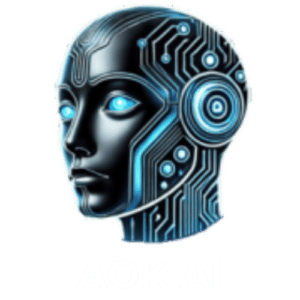AI vs Humans: Who Will Win the Productivity Race in 2025?
In 2025, productivity is no longer just about time management or discipline — it’s about the tools you use and how intelligently you combine them. The rise of Artificial Intelligence has shifted the game entirely. What was once the domain of human ingenuity is now a battleground where algorithms and brainpower collide.
The conversation isn’t just about machines replacing people. It’s about a new dynamic — one where AI and humans are collaborators, competitors, and co-creators in the race for output, efficiency, and innovation.
The Productivity Edge of AI
When it comes to raw speed, data processing, and task execution, AI wins — hands down. Machines don’t sleep, don’t get emotional, and don’t forget steps. They’re built to optimise, replicate, and scale.
AI tools like ChatGPT, Jasper, and Notion AI can generate written content, respond to customer inquiries, and compile reports at a pace that no human can match. Scheduling platforms powered by AI not only book meetings but also anticipate conflicts and optimise for energy levels. AI analytics engines sift through massive data sets in seconds, revealing trends and forecasts that would take human analysts weeks to uncover.
The result? Businesses that use AI aren’t just saving time — they’re expanding what’s possible within a single workday. A solopreneur in 2025 using AI tools has the output capacity of a five-person team from 2015.
AI also shines in consistency and compliance. Tasks that involve checking for accuracy, maintaining brand voice, or adhering to legal and operational guidelines are now easily managed with AI-assisted workflows. This reduces human error and increases output reliability.
The Irreplaceable Power of Human Intuition
But raw output is not the whole story. Productivity isn’t just about how fast you can finish tasks — it’s also about doing the right tasks at the right time, with the right tone, for the right people.
This is where human strengths shine. Creativity, empathy, spontaneity, ethical judgment — these are elements that AI still can’t replicate meaningfully. A machine can suggest a caption. A human crafts a brand story that resonates. AI can answer a customer complaint. A human turns that moment into a lifelong relationship.
In the boardroom, during a crisis, or when navigating complex interpersonal dynamics, it’s human intuition and emotional intelligence that move the needle. The entrepreneurs and professionals who lead with empathy, strategic insight, and authenticity will always have an edge AI can’t copy.
Humans also bring context. Culture, nuance, timing — these are fluid dynamics that require emotional awareness and real-time decision-making. That’s where human leaders continue to shine.
The Psychological Shift in the Workplace
As AI continues to outperform in speed and consistency, it’s also changing the psychology of work. A growing number of professionals — especially in digital and creative sectors — are feeling the weight of comparison.
According to 2025 research, nearly half of employees admit feeling pressured by the speed at which AI operates. They’re constantly measuring their productivity against something that never sleeps, never stalls, and never burns out. This creates a risk of burnout, anxiety, and a sense of being “left behind.”
However, this psychological tension also reveals an opportunity: redefine productivity. In the AI era, productivity should no longer be about hustle — but about harmony. Knowing when to delegate to a machine and when to step in as a human becomes the new leadership skill.
This has also triggered new workplace cultures that prioritise well-being over sheer output. Leaders are redefining team roles to focus more on emotional intelligence, vision, and decision-making — giving AI the routine and humans the high-level.
The Rise of the Hybrid Professional
The real winners of this race won’t be AI, and they won’t be traditionalists clinging to outdated workflows. It will be the hybrid thinkers — the entrepreneurs and professionals who know how to wield AI as an extension of their skillset, not as a threat to it.
These individuals use AI to handle grunt work, data entry, admin, and repetitive creation. Then they step in to add the human layer — the creativity, humour, instinct, and charm that makes content, communication, and leadership truly resonate.
They don’t fear AI. They master it.
This hybrid model also opens new roles — AI strategist, prompt engineer, automation consultant — proving that jobs aren’t disappearing, they’re evolving. The smartest professionals aren’t resisting AI. They’re getting certified, experimenting, building systems, and future-proofing their careers.
Emerging industries are already favouring AI-literate individuals. Marketing, finance, education, healthcare — every sector is shifting toward a model where knowing how to delegate to machines is just as important as knowing how to lead people.
Conclusion
The question of who will win the productivity race — AI or humans — is the wrong question. It’s not a fight. It’s a fusion.
AI is the accelerator. Humans are the compass.
Those who combine the two with clarity and purpose will lead the future. They’ll work faster, think deeper, and build smarter. Not because they’re machines — but because they’ve embraced one.
In the end, it’s not AI versus humans. It’s humans with AI who will own the race. The most successful businesses and individuals in 2025 will not be defined by how much they resist change — but by how well they adapt to it.
True productivity will come from synergy. A human who embraces AI is no longer limited by time or capacity. They’re amplified. And that, more than anything, is the edge that defines the future of work.
